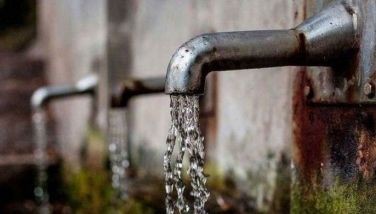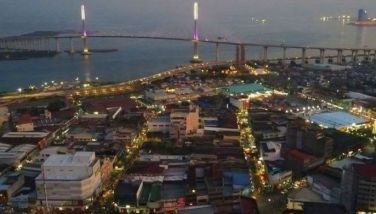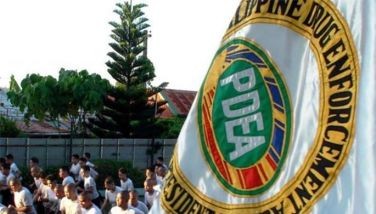Drug rehab across Central Visayas begins next month
CEBU, Philippines - The Department of Health (DOH) will implement in full swing its community-based drug rehabilitation program across Region 7 starting September.
Alongside this, inter-agency collaboration is also in place so that opportunities such as employment can be provided to recovering drug dependents once they complete the outpatient program.
"We are anticipating that the barangay-based program will be in place in September. Though this program has been adopted by DOH-7 and established by other local government units a few years already, but the full swing implementation is set next month," said Ma. Ligaya Moneva, health education and promotion officer of DOH-7.
"We are also working on the interagency collaboration. This is also with the help of faith-based organizations and private sectors. We are working together to address this societal problem and to help the drug dependents go back to their normal life and make them engage in their community again," Moneva said.
Moneva administers the agency's Substance Abuse and Aftercare Program.
Mass training and orientations with municipal health officers and social workers have been conducted as local government units cope with the mechanisms in community-based rehabilitation services.
Moneva said the regional training of trainers is targeting personnel from 10 cities and 97 municipalities in Central Visayas. These trainers are expected to cascade their knowledge to 2,446 barangays to capacitate their health workers in handling the influx of surrendering drug users.
DOH-7 is also training personnel from Negros Oriental, which is now part of the newly-created Negros Island Region.
Moneva said a number of local government units are implementing their own strategies for an outpatient drug rehabilitation program.
Dr. Dino Caing, head of DOH-7's Non-Communicable Disease Section, which handles the Aftercare Program, underscored the importance of health workers understanding proper pacing to ensure the effectiveness of the rehabilitation program.
The designed "algorithm", he said, is that drug surrenderers facing criminal charges will be handled by the local police while those free from any court case will be under the custody of social welfare officers or other personnel tasked to keep a profile of the drug surrenderer.
Health personnel then come in to assess the self-confessed drug user whether he or she can qualify for the out-patient rehabilitation service or if the person will have to undergo an intensive in-house treatment, which needs a court order before the person can be admitted.
Caing said some drug users are heavily affected and, therefore, cannot recover from drug addiction by mere treatment alone since they have to undergo intensive therapy such as detoxification, medications, among others.
Aside from the huge number of patients, health officials are pressed with the fact that only a few rehabilitation facilities are present in Central Visayas.
Caing said only two government-run rehabilitation centers in the region are accredited by DOH-7: one in Mandaue City (for female residents) and another located in Argao town, Cebu (for male residents).
State-run facilities charge lesser expenses from its patients as compared to private institutions that ranges monthly from P10,000 to P45,000.
These two facilities in the region are now crowded with patients.
Statistics from the Philippine National Police in Central Visayas already accounted to nearly 70,000 drug surrenderers, as of August 16.
Moneva said that on the average, 10 percent of the drug surrenderers may have to be confined in rehabilitation centers while 50 to 60 percent may be enrolled under the outpatient program.
She said the community-based program will only run for four months that provides enrollees with the necessary treatment such as medical care, psycho-social intervention, and weekly drug testing, among others.
"After four months, they are expected to be back in the normal mind set cleared from any use of illegal drugs. Then from here, the various partner agencies will come in," Moneva said.
A special body dubbed the "interagency collaboration on mental health and drug abuse" was activated to provide support to recovering drug dependents after their four-month community-based treatment.
Every agency has its own significant function. The Department of Labor and Employment and Technical Education and Skills Development Authority assist in providing employment or trainings; the Department of Education holds regular information drive on the ill effects of drugs; and the Department of the Interior and Local Government oversees the local government units in implementing the program. (FREEMAN)
- Latest























